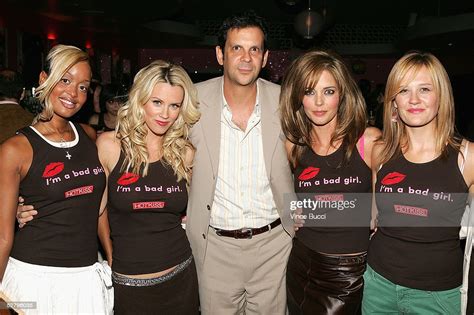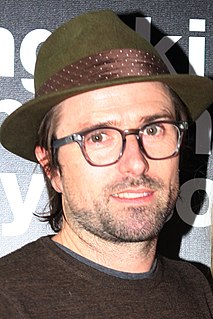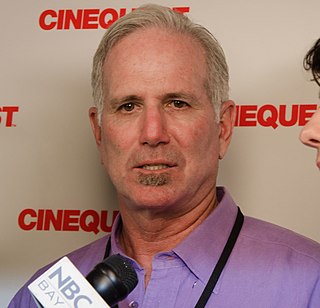A Quote by Nina Jacobson
There is a variety of different kind of producers. I'm a very hands-on, creative producer. I find material that I think would make a good movie or TV show, find the right financier/studio/network, hire a writer, get a good script, find a director, and collaborate with him/her to cast the movie and hire department heads.
Related Quotes
The way I pick movies is, first, if the script is any good. Then, if the script is good, who else is in it, the director, the producer, all that. If you have all that, there's a chance the movie will be great. If the script isn't right, or the director or cast isn't right, you've got no shot in hell.
I'm kind of the boss. I could fire myself if I ever got out of line, and I can hire myself too which is a good thing. It gives me a responsibility to the financial realities of the picture. I'm an extremely conscientious producer and now equally as a director and it now gives me the opportunity to look at the entire movie and allow the movie to be the creative vision of the actors, the writer and myself, because I'm in charge of it from a producer and a director point of view. It gives me freedom and it gives me a certain degree of responsibility at the same time.
I find music the the clearest and easiest way in to what a movie will feel like - more so than visual references or other movies or dense dossiers of research material. Every now and then I'll send a piece of music or two to people I'm working with - actors or heads of department - when I think it'll help them get a sense of the kind of movie I'm proposing. Often those pieces will end up in the movie - sometimes they won't.
Writing a good movie brings a writer about as much fame as steering a bicycle. It gets him, however, more jobs. If his movie is bad it will attract only critical tut-tut for him. The producer, director and stars are the geniuses who get the hosannas when it's a hit. Theirs are also the heads that are mounted on spears when it's a flop.
The key thing that I find that when you're kind of in boom times and you're hiring bunches, if you can hire, you know, always maintain very high standards and even if you, you know, can't find enough of, you know, what is typically called A players, then don't hire the people. All right? So, you know, use that as a way of standards.
I think I'm an extremely conscientious producer and now equally as a director and it gives me the opportunity to look at the entire movie and really allow the movie to be the creative vision of the actors, the writer and myself, because I'm in charge of it from a producer and a director point of view.
The territory has changed, and a lot of really good actors want to do cable series, but they don't necessarily want to do network TV and make the commitment of 22 episodes or whatever. They find that the liberties and the creative freedoms that you get in cable is more interesting to them than the censorship of a network show.
With a good script a good director can produce a masterpiece; with the same script a mediocre director can make a passable film. But with a bad script even a good director can’t possibly make a good film. For truly cinematic expression, the camera and the microphone must be able to cross both fire and water. That is what makes a real movie. The script must be something that has the power to do this.
It's true that I don't think I'd be a good director. If I were a director, I'd try to hire the best people I could and then leave them alone. I don't know much about cameras or lighting, so I'd make sure that I had a really good cameraman who understood lenses and lighting, and I say to him, "This is the scene we have to shoot and this is what I think it should be, you go do it." Same with actors. But really, very good directors who know everything do basically the same thing. They hire you and then they leave you alone.


































